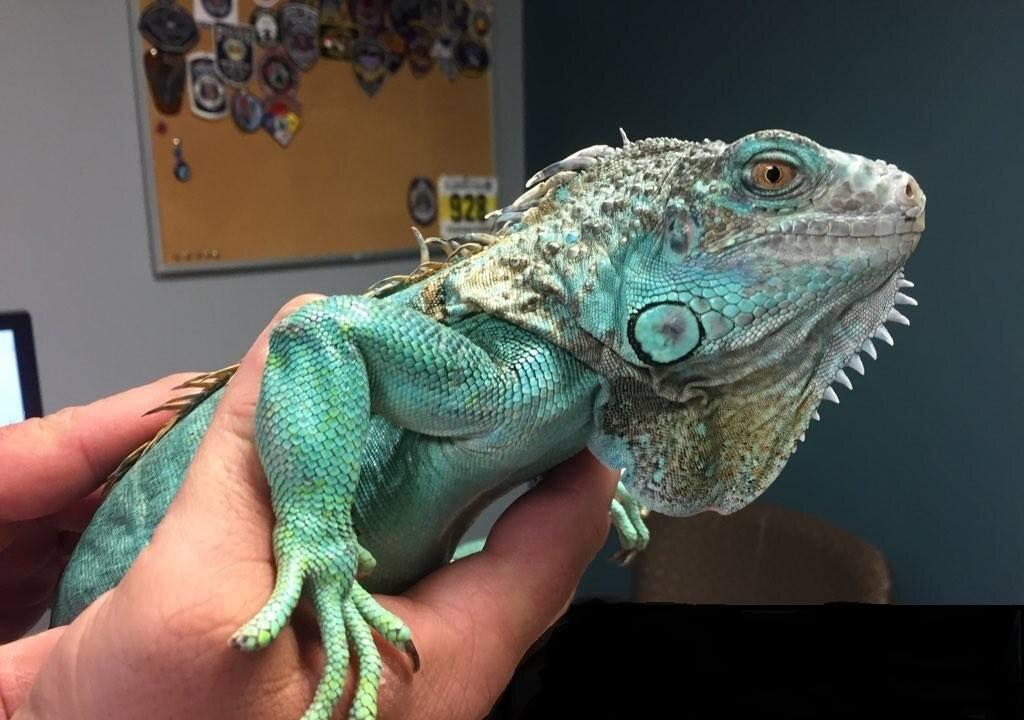An iguana swung around by its tail before being thrown at by a man remains in protective custody with police in Ohio as of May 2, awaiting approval from local courts to get the medical care she needs to recover.
The young female iguana, named “Copper” by the police, was brought to the Lake County Humane Society on April 16 after being thrown at a local restaurant in Painesville, Ohio, approximately 30 miles northeast of downtown Cleveland.





